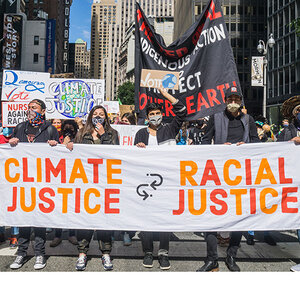Union claims Sierra Club layoffs unfairly impacted BIPOC workers
The Sierra Club’s restructuring plan, which resulted in the layoffs of more than two dozen employees this past spring—many of whom were Black—is being called out by the organization’s union as having “disproportionate impacts” on Black workers, Indigenous workers, and other staffers of color, the Washington Post reports.
A letter to the Sierra Club’s board from the Progressive Workers Union, which represented roughly 400 Sierra Club staffers before the layoffs, noted that the effects of the layoffs “run counter to the Sierra Club’s and the union’s shared goals and vision.” The Sierra Club made headlines in January hiring civil rights leader Ben Jealous, who promised to make the organization a more inclusive environment and address issues of gender, racial, and pay equity. The layoffs in April and May intensified scrutiny the organization was facing as the entire equity team and several members of the environmental justice division were laid off. The organization’s People, Culture and Equity Department, which includes the equity team and the human resources team, was renamed the People Department, and a vocal critic of the original department was hired as its leader. Following the letter to the board, union leaders told the Washington Post that people of color accounted for about 48.5 percent of unionized employees who were let go. Sierra Club spokesperson Jonathon Berman disputed the claim and said that overall diversity of staff at the organization was not affected by the layoffs.
Jealous told the Post the layoffs were necessary due to the organization’s $40 million annual budget deficit. Union leaders, however, claim the savings the organization would have experienced through the layoffs were offset by the hiring of 10 six-figure executive positions.
Still, the Sierra Club is not the only green group struggling with diversity, equity, and inclusion. White workers account for the vast majority of employees at the nation’s 40 largest environmental organizations and foundations, according to a survey conducted last year by Green 2.0, a group advocating for diversity within the environmental movement. “We need to make sure that we’re doing better as an environmental sector,” Green 2.0 executive director Andres Jimenez told the Post. “Social justice is environmental justice. It’s critically important that organizations are able to prioritize both.”
(Photo credit: Getty Images/recep-bg)





